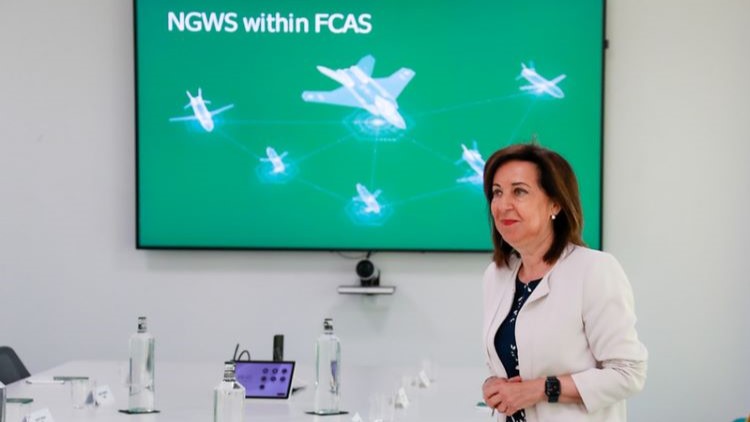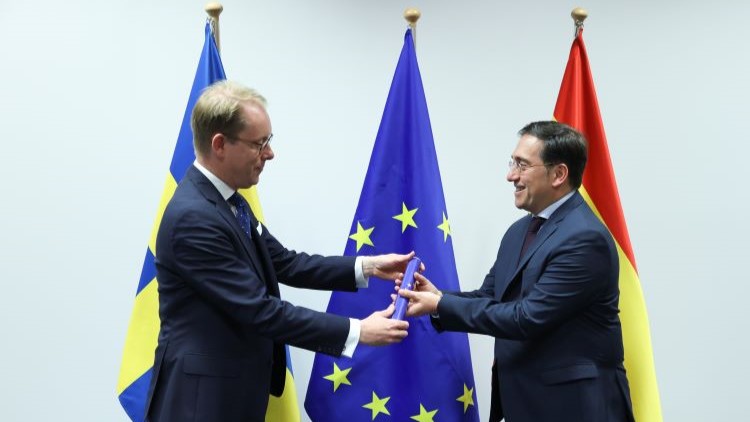The Diplomat
The Minister of Defense, Margarita Robles, took advantage of a visit to the Spanish defense industry yesterday to warn NATO that its industrial action plan will not go ahead “if Spain is not part of it”.
Robles made these statements during her visit, at Indra’s headquarters in Alcobendas (Madrid), to the National Coordination Office of the NGWS/FCAS Program (future combat aircraft), the main aerospace program for the coming decades, in which Spain participates on equal terms with France and Germany. The Spanish Government participates with 33% of the 2,500 million euros committed until 2027 and the Ministry of Defense will support the industrial capitation with a national support program in the field of R+D+i.
During her tour, the minister assured that “a very important effort has been made, with a 26 percent increase in the budget”, which represents “a very clear commitment to the defense industry, where there is a lot of muscle, potential and talent”. For this reason, she continued, “we have to feel proud” and NATO’s industrial action plan “does not come out if Spain is not part of it”.
Indra’s CEO, Marc Murtra, met the minister and the Secretary of State for Defense, Amparo Valcarce, at the Indra FCAS headquarters, together with other industrial representatives of the companies AIRBUS Defence and Space, GMV, Sener, Tecnobit and ITP. During the visit Robles was able to see the significant progress made by the FCAS program in recent times and the Secretary of State for Defense declared that this is a strategic program due to its impact on all the main lines of the Defense Industrial Strategy.
On June 14, Margarita Robles decided not to participate in a NATO meeting with representatives of the European and North American defense industry to work on Euro-Atlantic arms production plans after finding out that the Atlantic Alliance had not included Spanish companies among the 25 firms invited. That same day, the Minister met with the Secretary General of the Alliance, Jens Stoltenberg, to express her dissatisfaction and ask him to “reconsider”.
The following day, the minister went further and warned in Brussels, shortly before participating in the meeting of the Ukraine Defense Contact Group and in the first session of the ministerial meeting of the North Atlantic Council, that “whatever is done in NATO on defense industry has to count on Spain” and, therefore, if this situation continues, Spain could “veto” the adoption of the industrial plan during the Alliance Summit in Vilnius, scheduled for mid-July. With this plan, NATO hopes to increase arms production to cope with the decline in its arsenals due to Russia’s war against Ukraine.
Spain is not the only country that has shown its dissatisfaction with a meeting that has left out 13 of the 31 allied countries. Although the June 15 meeting with the companies was no more than an informal contact and no decision was expected, Spain’s absence, according to Margarita Robles, was a “bad starting point” because “the Spanish defense industry cannot be left out of a meeting of such importance.” “The Spanish defense industry is very good, it creates a lot of innovation and technology and many jobs,” she insisted.






